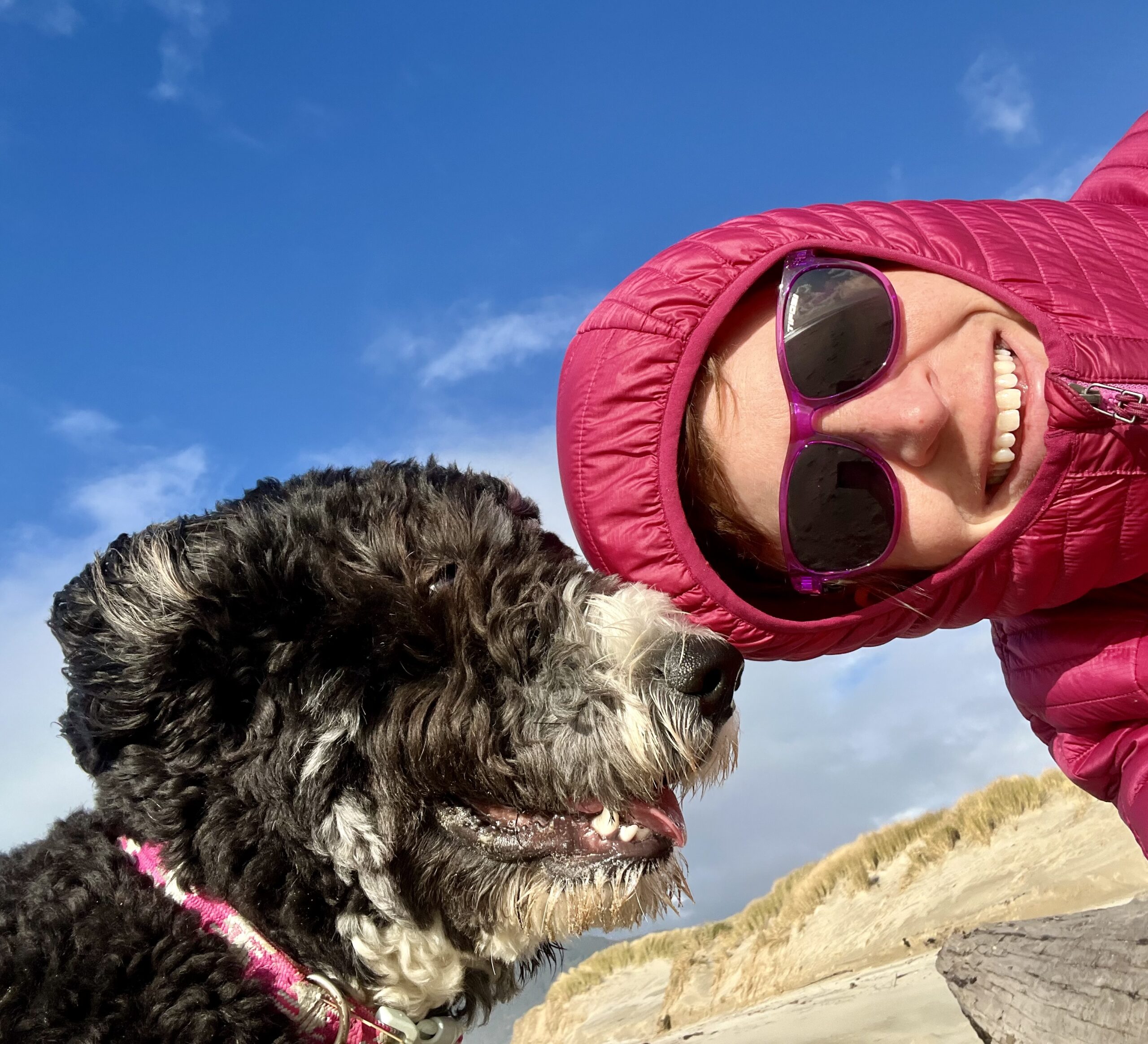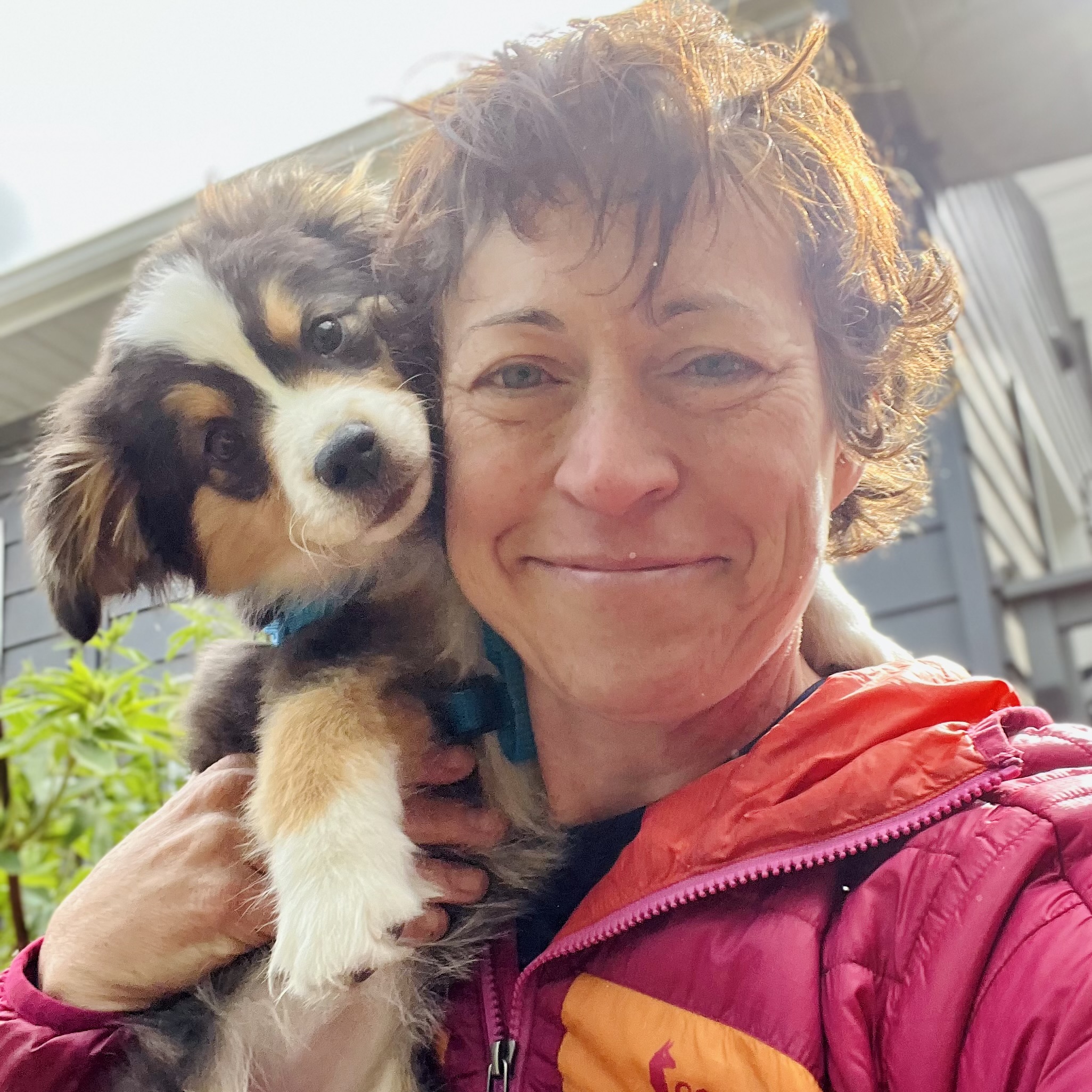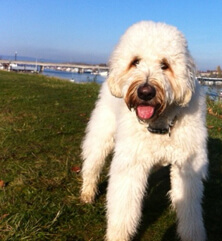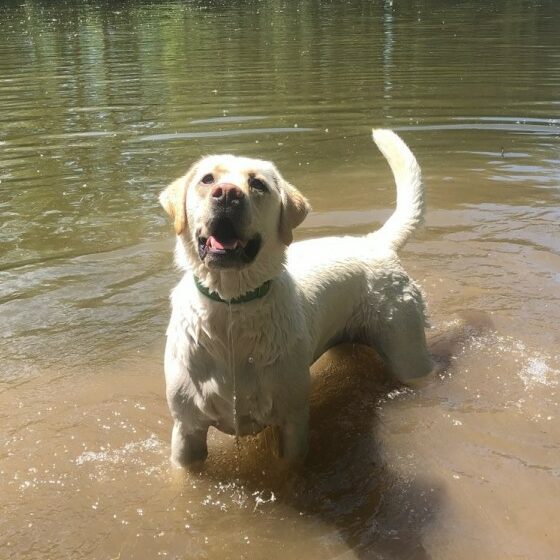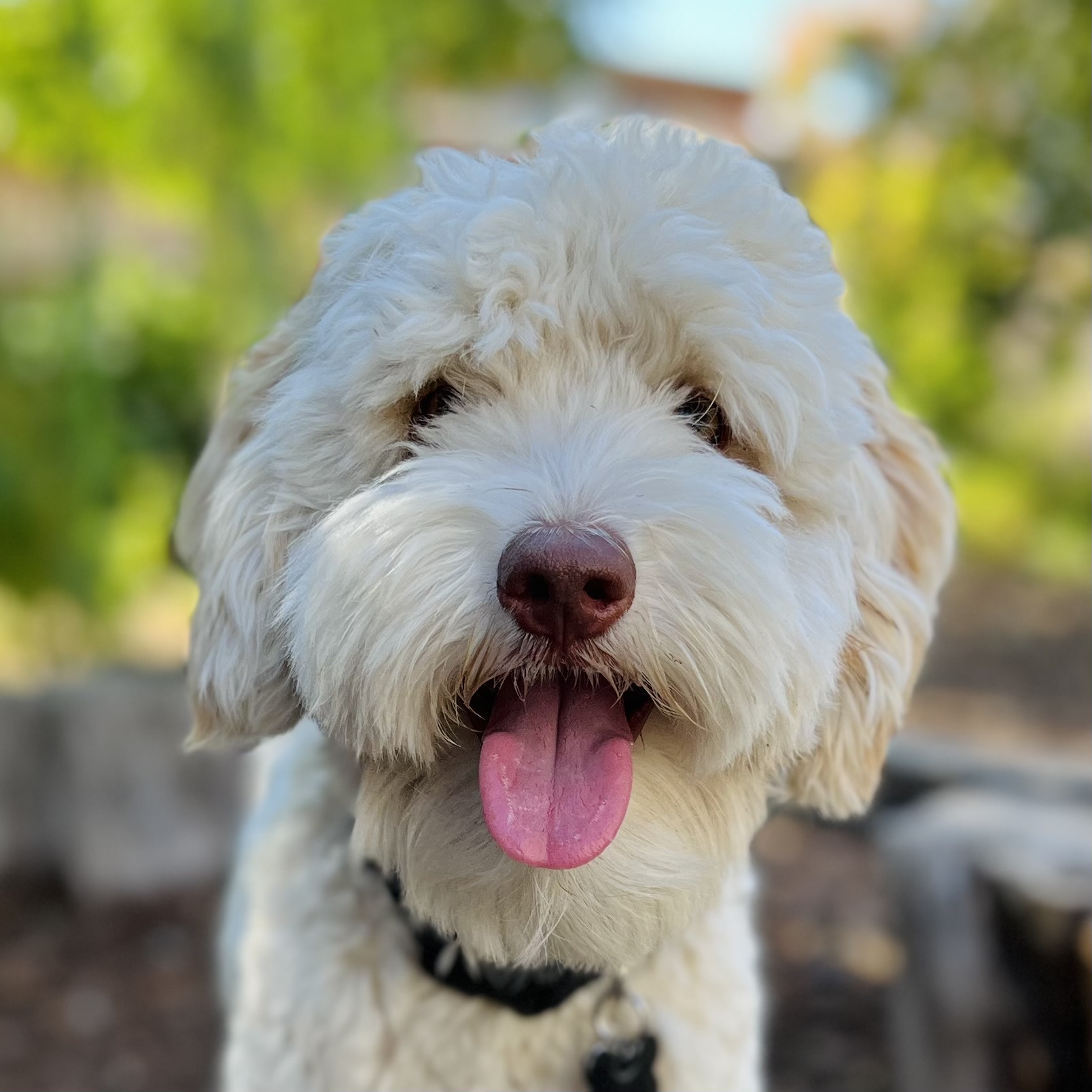I have things to say.
by Kerry Ryan, Certified Professional Dog Trainer and Family Dog Mediator
Oh hello! (Please picture me like a character in a sitcom intro, busy training a dog but then turning and smiling at you, because that's how I think it should be.)
(The dog also turns and smiles.)
My name is Kerry Ryan. I started Dog Adventures Northwest in 2011 because I saw a need for Portland dogs to get more enrichment so that they could lead their very best lives. Since the company's inception, we have grown to a team of over thirty of the finest trainers this side of the Mississippi, and have hiked and trained and snuggled with literally a kabillion dogs. Literally.
I have a lot to say. So much, in fact, that I thought it best to write it all down.
Welcome.
I will start saying things now.
“Outside of a dog, a book is a man's best friend. Inside of a dog, it's too dark to read.” ~Groucho Marks
While there is no way to climb inside a dog to perceive their experience of existence, it is in our human nature to try to understand the world around us. Copious scientific studies, past and present, seek to illuminate dog cognition, and endless books and movies fantasize about a dog’s inner world.
Perhaps more significant, however, is our uniquely first-world drive to change a dog’s mind, the pursuit of which absolutely eclipses our drive to understand it. Type “dog training” into any web browser and receive an overwhelming avalanche of contradictions, opinions, and absolutism about how to properly rewire a dog’s brain.
Our human hubris in seeking to change that which we do not understand is as boundless as the sea. And while the outdated and disproven ideas behind “pack theory” have finally begun their (glacially) slow retreat, the more recent discourse about ethical behavior modification also falls short, as the conversation presumes that certain behavior must be, should be, and/or can be changed in the first place. Furthermore, it presumes that if a particular behavior does not change, the fault lies with the handler or the dog.
What if, instead, we first sought to genuinely understand the unique biological and environmental context in which behavior occurs? And then (and only then!) move forward with discussions about behavior change?
Here’s the thing: all dogs are actually really, really good at being dogs. In fact, they nail it, continuously, on a daily basis. Dogs do not make great humans, however, which is usually what we are asking of them when we pursue behavior modification.
As domesticated animals, dogs live in close association with humans, but that’s where it ends. Domestication does not mean captivity. In fact, approximately 80% of the dogs on our planet live in and around human settlements, foraging and scavenging for food, forming and disbanding social groups as needed, and reproducing at will. It is largely only first-world countries that have engaged in captivity and artificial selection, first to serve a specific function (hunting, herding, guarding, etc) and then to serve our invented physical breed “standards.” Through this selective breeding, humans have attempted to suppress various biological needs of our four-legged canid companions. Further still, we have reframed these needs as problems, essentially pathologizing the elements of a dog's natural behavior that have been inherited from primitive ancestors, as well as their artificial behavior inherited from their recent task-oriented forebears.
To put this simply: we are asking our dogs to stop expressing their biological needs. And… it's not going well. For anyone.
All hope is not lost, however. There is a way to make it work. We can meet our dogs in the middle. "Hey, can you follow human rules sometimes?" we can ask. "If you do, we'll make it worth your while. We’ll also promise to remember your biological imperatives (some of which we humans have created through artificial selection!), and give you the freedom to express these behaviors as a fundamental part of your welfare."
At this moment, you may not know how to fulfill this promise to your dog, and that’s A-OK. That’s why you’re here! So, first of all: kudos. You have taken perhaps the biggest step toward ethical dog guardianship by approaching your dog with curiosity instead of commands.
Second of all: you are not engaged in this pursuit alone. I’m here with you, as well as the full Dog Adventures Northwest team! I started my dog training journey in 2003, became a Certified Professional Dog Trainer (CPDT-KA) in 2005, and a Family Dog Mediator (FDM) in 2023. I live, breathe, and dream all things Dog. I am not here to give you all of the answers. (Anyone who promises this only proves that they do not, in fact, have all of the answers.) But I do know a heck of a lot about dogs, as well as how to build strong and communicative relationships between dogs and their people, and I am learning more every single day.
Thirdly: by working your way through these resources, your pup will be the beneficiary of cutting edge scientific research and discourse. Back in 1985, when my family adopted my childhood dog Casey, we’d hit her when she peed on the floor. We genuinely thought we were doing the right thing. Applied ethology and behavioral science have come a long way since then, however. When we know better, we do better. And holy smokes, do we know better.
Welcome to the better side of dog training.
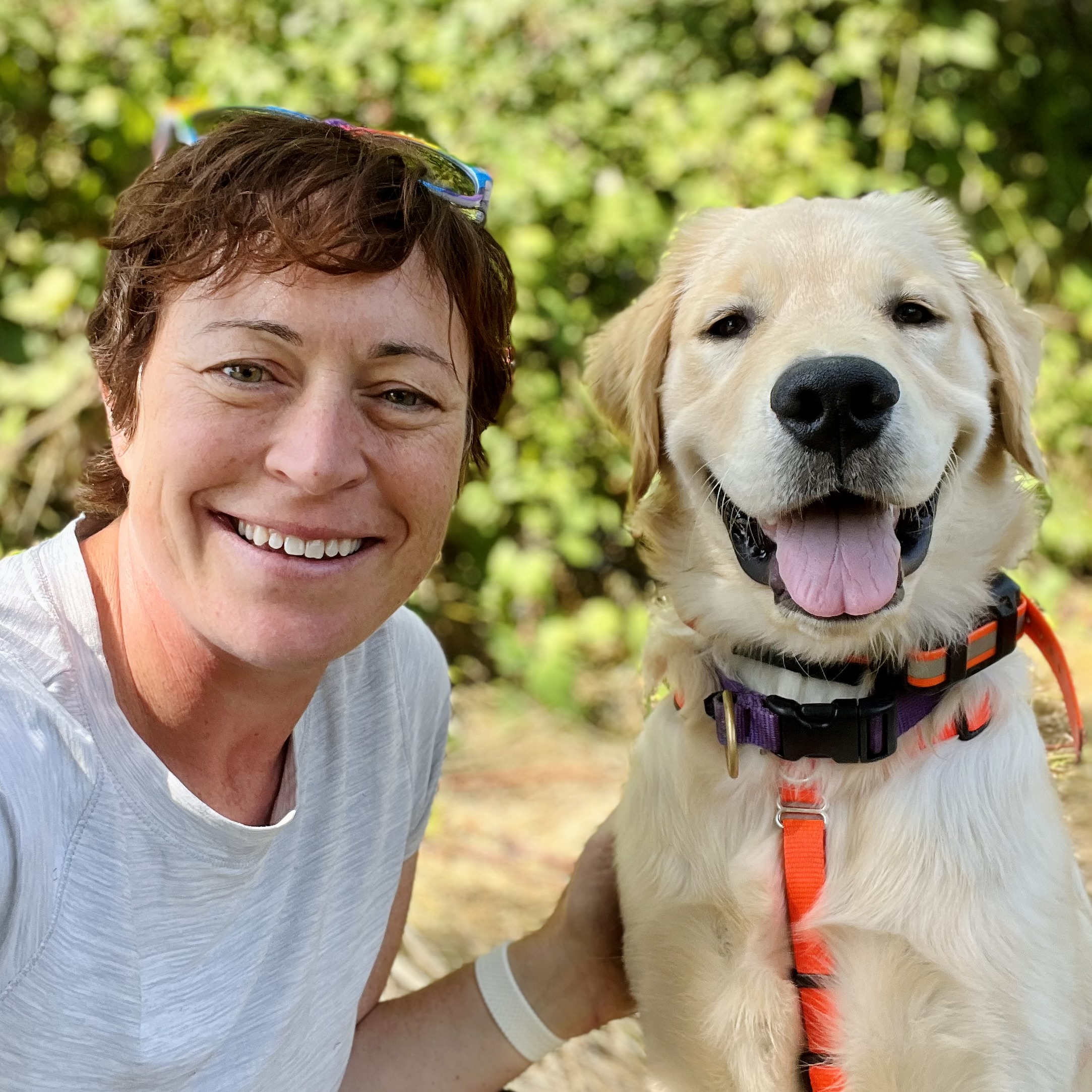
This is what we look like when we turn and see you fyi.
How to use this blog...
Feel free to click about at random, or to use the search bar to find subjects relevant to your needs. You'll find how-to entries for various behaviors as well as posts on canine development, training mechanics, key concepts in learning theory and behavior modification, and discussions of All Things Dog.
Please drop me a line if you'd like coaching through any of it, in-person or virtually. Also, feel free to let me know what you think. The more conversations we can have about improving the bond between dog and guardian, the better.
Woofs and Wags,
Kerry 🐾

